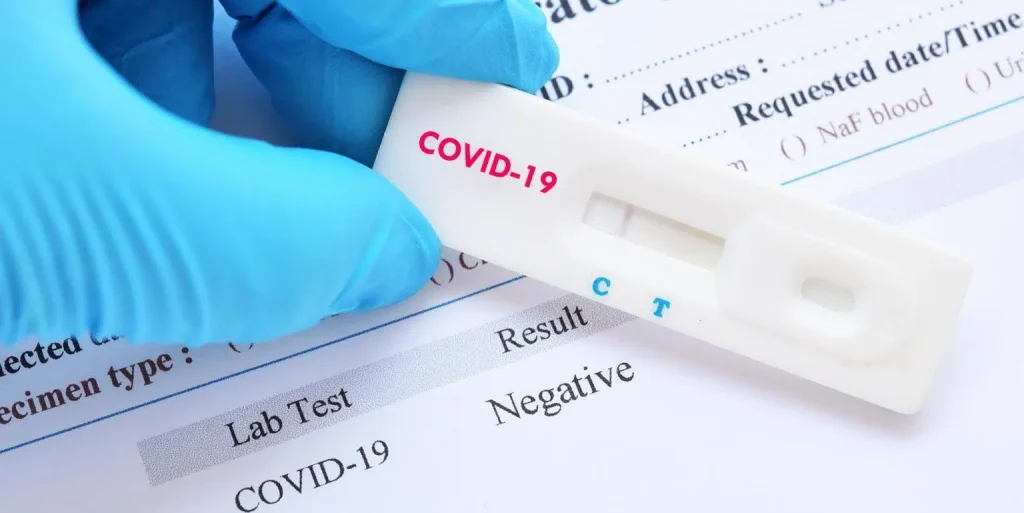With no substitution, oxygen is a crucial and life-saving medicine. Doctors and allied healthcare professionals provide oxygen support to patients with severe respiratory diseases such as pneumonia. In addition, it is important for trauma and surgery. Vulnerable groups such as pregnant females, elders, and newborns require oxygen therapy regularly.
Most of us are aware of the importance of oxygen. However, its importance became a buzz in the second wave of Covid-19 in the first half of 2021. Even after more than 2 years of the ongoing pandemic, people are still having Covid 19 tests in Greater Noida or their locality whenever they notice any significant symptoms of coronavirus in them. Currently, people have a query why some Covid-19 patients require oxygen. Before getting a suitable answer to this query, let’s have a look at a few associated points:
What is medical oxygen?
Oxygen is essential for every one of the living objects available on earth. It is available in nature. However, health professionals need specific oxygen to treat patients with serious respiratory illnesses such as Covid-19. This specific oxygen is medical oxygen. It is highly pure and available as an oxygen cylinder/concentrator or vacuum insulated evaporator. Doctors or healthcare professionals use it enhance the oxygen levels in people suffering from:
- COPD (chronic obstructive pulmonary disease)
- Shock
- Respiratory arrest
- Severe haemorrhage
- Cardiac arrest
- Cyanosis
- Covid-19 with breathless symptoms
Why do some people with Covid-19 infection need oxygen support?
The SARS-CoV-2, a novel coronavirus, ties up with ACE-2 receptors available in the lungs. Due to infection, there is damage to the epithelial cells that connect the respiratory tract and safeguard the airway tract. Numerous changes take place in a human body after having Covid-19 infection. Some of those changes are as follows:
- There is a disruption in the exchange of carbon dioxides and oxygen in the tiny sacs of the lungs.
- The infection accelerates the immune system of a person’s body and releases immune cells like interleukins and cytokines to fight against the infection. A long battle causes inflammation in the body and affects the oxygen transfer to the lungs.
- Due to constant infection, people with serious Covid-19 infection have a buildup of swelling and fluid in their lungs. This buildup causes pneumonia in them.
- Severe damage to the lungs’ tiny sacs may lead to ARDS (acute respiratory distress syndrome), which healthcare professionals term rapid breathing pattern or severe breathlessness.
All these changes make people with Covid-19 infection have difficulty in breathing. It leads them to a need for oxygen support.
Do all Covid-19 patients require oxygen support?
In general, all the patients of Covid-19 don’t need oxygen support or therapy. The patients with acute respiratory distress syndrome or ARDS require oxygen therapy. Such patients have symptoms like:
- Shallow or rapid breathing
- Enhanced heart rate
- Breathlessness or short of breaths
- Increase in blood pressure
- Fatigue
- Confusion
- Discolouration of the face, feet, and hands
- Fever, chest pain, or cough showing off pneumonia
How do doctors or healthcare professionals know patients need oxygen support?
All patients of Covid-19 do not have signs of ARDS or hypoxia. Doctors recommend a few tests to determine the oxygen levels when a patient shows off breathlessness or rapid breathing. The probable tests are as follows:
- Pulse oximetry
- Arterial blood gas saturation
- Blood pH
What should you do?
The Covid-19 pandemic has not come to an end. After the end of the 3rd wave, there is a risk of the fourth wave of this pandemic across the world. This wave can be the result of a new variant, Deltacron, which is a mixed form of Delta and Omicron of the Covid-19. Here are some points that you should follow:
- Maintain a safe distance from others in the crowded places or closed space
- Always have an N95 mask on your face. Keep it well to cover your nose and mouth
- Avoid touching any object outside
- Wash your hands with soapy water or sanitise your hands before touching your face
- Take a rest if you notice anything wrong inside your body and come out of residence after becoming well
- Consult your doctor if you notice no improvement in 1-2 days through rest
- Take the prescribed medicines properly
- Measure your oxygen level when you feel breathlessness
Conclusion
Covid-19 is a life-threatening disease if not cared and treated well at the right time. It gradually affects the lungs of an infected person and creates a need for an oxygen therapy due to some changes happening in the body. Proper care and and right treatment can help you stay away from the need for having oxygen support.


More Stories
Gum Health Matters: The Role of a Periodontist Explained
Clear Skin Ahead: The Ultimate Guide to Effective Acne Treatment
Unleash the Power of Zzz’s: 7 Tech Tricks to Transform Your Sleep Game